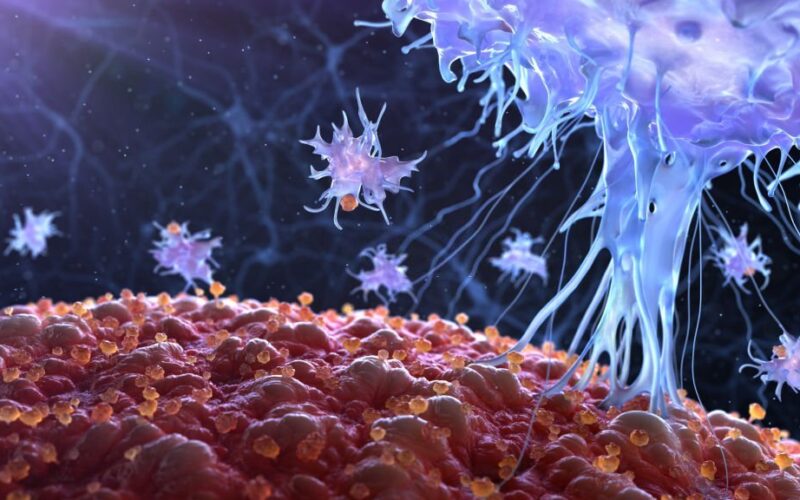Lymphocytes are a type of white blood cell that play an important role in the immune system. They help protect the body against infection by attacking and destroying bacteria and other invaders. There are three types of lymphocytes: B cells, T cells, and natural killer cells. Each type has a different function in the immune system.
Table of Contents
Types of lymphocytes:
There are three types of lymphocytes: B cells, T cells, and natural killer cells.
B cells are responsible for producing antibodies in response to infection.
T cells help regulate the immune system and play a role in destroying infected or cancerous cells.
Natural killer cells destroy virus-infected cells and cancerous cells without damaging nearby healthy tissue.
How do lymphocytes work?
The immune system is a critically important part of the human body. There are many different cells and organs that work together to keep us healthy and fight off infection. One important component of the immune system are lymphocytes. Lymphocytes are a type of white blood cell that originate in the bone marrow. They play a crucial role in defending the body against infection. Lymphocytes work by identifying and attacking foreign cells in the body. There are different types of lymphocytes, each with its own unique function. T-cells, for example, help to destroy infected cells. B-cells produce antibodies which attack bacteria and viruses. Lymphocytes play a vital role in keeping us healthy and protecting us from infection.
Where are lymphocytes found?
Lymphocytes are a type of white blood cell that can be found in the lymph nodes, spleen, and thymus. They play an important role in the body’s immune system by helping to fight infection. Lymphocytes are also responsible for producing antibodies, which help to protect against disease.
What diseases are caused by lymphocytes?
These are a critical part of the immune system, helping to fight infection and disease. However, lymphocytes can also be responsible for causing diseases. Some of the diseases that are caused by lymphocytes include:
- Lymphoma: Lymphoma is a type of cancer that starts in the lymph nodes. Lymphoma is caused by abnormal lymphocytes that grow out of control and form tumors.
- Leukemia: Leukemia is a type of blood cancer that starts in the bone marrow. Leukemia is caused by abnormal white blood cells (lymphocytes) that grow out of control and crowd out healthy blood cells.
- HIV/AIDS: HIV is a virus that attacks the immune system and can lead to AIDS. HIV is spread through contact with infected body fluids, such as blood or semen.
What are the symptoms of lymphocytes?
They are a type of white blood cell that play an important role in the immune system. They help to fight infection and disease. Lymphocytes can be divided into two types: B cells and T cells.
B cells are responsible for producing antibodies, which are proteins that help to fight infection. T cells help to control the activities of other cells in the immune system.
They are produced in the bone marrow. They circulate in the blood and lymphatic system, where they help to protect the body from infection and disease.
The symptoms of lymphocyte deficiency can vary depending on the type of lymphocyte affected. B cell deficiency can cause a person to become infected with bacteria, viruses, or parasites more easily than usual. They may also have difficulty fighting off infections.
What are the treatments of lymphocytes?
There are many treatments of this disease. One way is to use a drug called rituximab (Rituxan). Rituximab is used to target and destroy B cells. It is given as an infusion into a vein. Other treatments include chemotherapy, radiation therapy, and stem cell transplant.
Conclusion:
In conclusion, lymphocytes are incredibly important cells in the immune system. They play a major role in defending the body against infection and disease. There are many different types of lymphocytes, each with its own unique function. Lymphocytes are produced in the bone marrow and are found in the blood, lymph nodes, and other organs. They work together to protect the body from harm.









